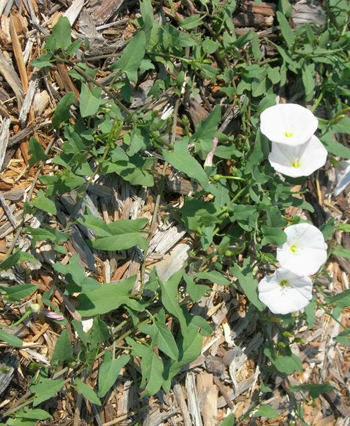Noxious Weed Control Resources
Return to Crops and Livestock Agent Articles
 While agriculture can have its challenges in an urban community like Johnson County, we also have some great resources. And one of those often overlooked resources is the Johnson County Noxious Weed Department.
While agriculture can have its challenges in an urban community like Johnson County, we also have some great resources. And one of those often overlooked resources is the Johnson County Noxious Weed Department.
Jim Hoge, noxious weed director for the Johnson County Department of Public Works and Infrastructure, has been helping landowners identify and manage problem weeds for a long time. Jim has available a number of different reduced-cost herbicides to help control some of our most troubling weeds called noxious weeds. He also has a couple of sprayers for rent to help in that treatment process.
New product — low drift 2,4-D
One of Jim’s newest products is 2,4-D formulation with low drift potential. It works well around neighbors with a sensitive site such as a vineyard or greenhouse.
2,4-D choline is now available in a combination product with glyphosate and as a standalone herbicide. The newest and most innovative 2,4-D formulation features excellent cold weather performance with nearly no odor. Choline products have proven to have ultra-low volatility. Laboratory and field tests were conducted using cotton, grapes and tomatoes, three of the most sensitive crops.
Even with high temperatures the plants showed little to no response. Physical drift is reduced as well by optimizing spray particle distribution and minimizing the number of driftable fines. Overall volatility has been reduced by up to 86% in university trials conducted in the U.S. and Australia.
For further information, please contact the Johnson County Noxious Weed Department at 913-715-8358.
